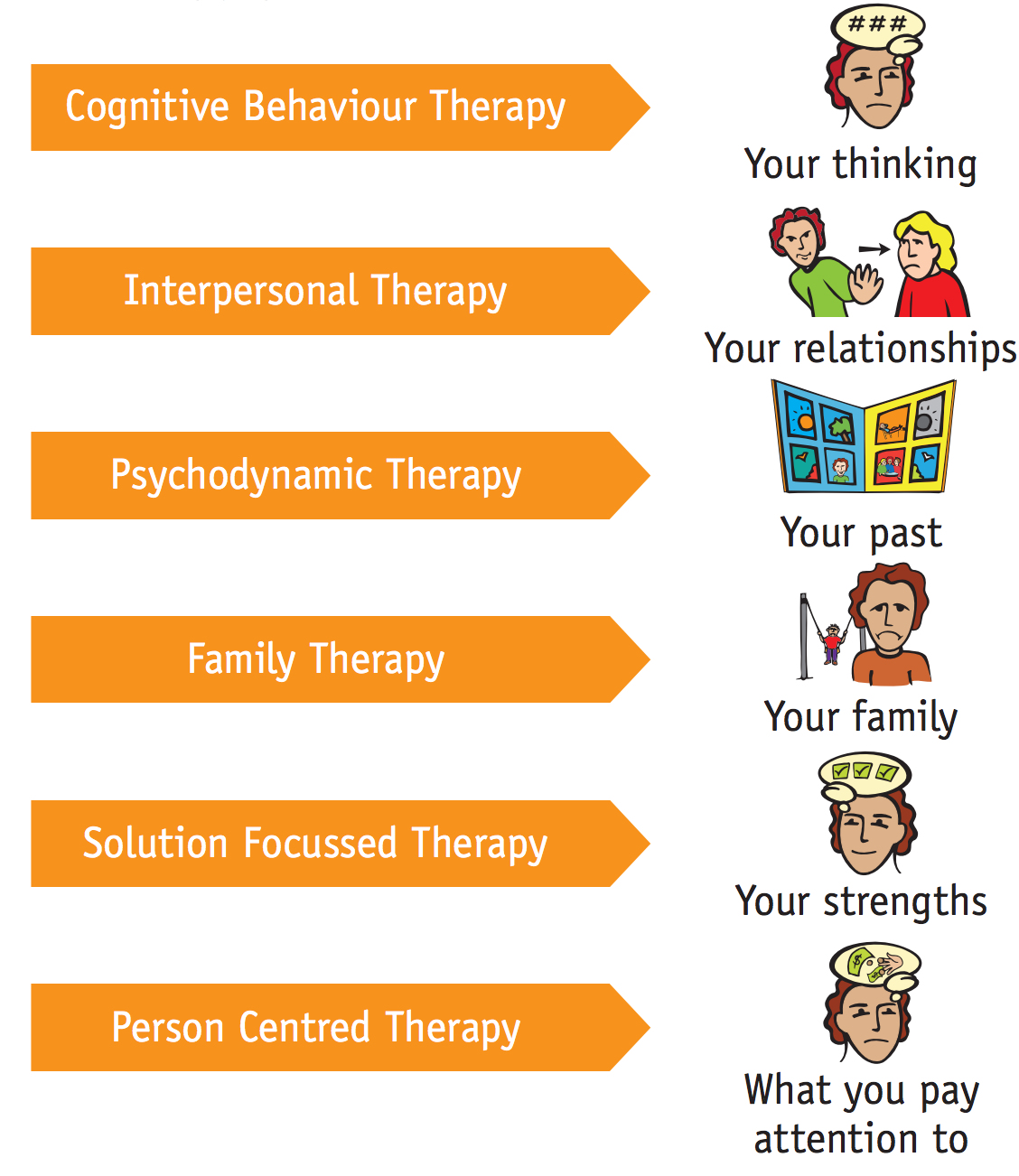Checking out the Benefits of Virtual Therapy in Modern Mental Health Care
The rise of virtual therapy notes a substantial change in psychological healthcare. It uses enhanced access, allowing individuals from diverse histories to look for assistance without geographical restraints. Flexibility in scheduling fits differing way of lives, while the comfort of home can promote openness. The implications of these changes prolong past plain ease. The evolving landscape of therapy increases crucial inquiries concerning its long-term effects on client interaction and treatment results.
Boosted Ease of access for All
Standard therapy usually offers obstacles such as geographical place and organizing problems, virtual therapy substantially enhances ease of access for individuals seeking mental health and wellness assistance. By removing the demand for physical traveling, virtual therapy allows clients from remote areas or those with wheelchair obstacles to get in touch with qualified experts. This setting of therapy can reach underserved populations who might do not have regional psychological health and wellness resources, therefore dealing with variations in access to care. Furthermore, virtual systems can cater to varied demands, providing services in multiple languages and suiting different cultural backgrounds. Clients can involve with a wider range of specialists, giving them with choices that align with their details requirements and preferences. This raised access promotes a more comprehensive atmosphere, allowing people to seek help without the preconception often linked with in-person brows through. Generally, virtual therapy represents a significant development in making psychological healthcare much more available to all.
Flexibility in Scheduling Procedure

As virtual therapy continues to gain traction, its inherent adaptability in organizing sessions confirms to be a significant advantage for several individuals. Unlike traditional in-person therapy, virtual therapy allows clients to pick session times that finest fit their personal and professional dedications. This flexibility accommodates those with requiring work routines, household commitments, or other commitments that can make attending physical consultations challenging.
Customers can quickly reschedule or change their sessions as required, minimizing the anxiety linked with inflexible appointment systems. The schedule of various time slots throughout the week, consisting of nights and weekends, even more enhances ease of access. This adaptability not only urges uniformity present but additionally promotes a higher commitment to the healing procedure. Eventually, the flexibility in organizing sessions stands for a transformative shift in psychological healthcare, empowering people to prioritize their health without compromising other facets of their lives.
Comfort of a Familiar Environment
The convenience of a familiar setting substantially improves the effectiveness of virtual therapy for several customers. Taking part in therapy from the safety and security of their own homes allows people to feel even more at simplicity, decreasing anxiousness that may accompany standard in-person sessions. This familiarity can facilitate open interaction, allowing customers to reveal their thoughts and sensations a lot more freely.
Furthermore, the existence of personal things and the capability to manage their surroundings can contribute to a complacency and leisure. Clients typically report that being in a comfortable area allows them to focus more on the healing procedure instead than the setting itself.
Furthermore, the casual nature of virtual sessions can aid liquify obstacles that may exist in a traditional office atmosphere, cultivating a deeper connection with therapists. On the whole, the comfort of familiar environments plays an important role in improving the healing experience and effectiveness for numerous individuals looking for psychological wellness assistance.
Larger Series Of Healing Options
A bigger variety of therapeutic choices appears with virtual therapy, permitting clients to accessibility different modalities that may not be viable in typical setups. This flexibility makes it possible for people to check out diverse strategies such as cognitive-behavioral therapy, mindfulness techniques, art therapy, and even specialized interventions like trauma-informed treatment or dialectical habits therapy.
Moreover, customers can select from a broader spectrum of specialists, consisting of those who concentrate on specific niche areas or details populations, improving the chance of finding an ideal match. Virtual platforms often offer accessibility to team therapy sessions, assistance communities, and workshops that might be geographically not available otherwise.
This variety empowers clients to take part in their recovery procedure according to their look at more info distinct preferences and requirements, potentially increasing inspiration and commitment to therapy. As an outcome, the landscape of mental wellness treatment ends up being much more inclusive and adaptable, dealing with a larger array of specific experiences and challenges.
Lowered Stigma Bordering Therapy
Accessing therapy with virtual systems contributes to a significant decrease in the stigma generally associated with psychological healthcare. By supplying a discreet and private environment, virtual therapy permits people to look for aid without the anxiety of being judged or identified. This privacy attract those that may or else wait to pursue in-person therapy due to social understandings bordering mental wellness.
Moreover, as the occurrence of virtual therapy increases, it stabilizes the conversation around psychological wellness, making it a more acceptable component of daily life. People frequently really feel a lot more comfy discussing their experiences online, promoting openness and reducing sensations of isolation. The accessibility of these solutions also motivates a wider demographic to engage with mental health sources, fostering a society of support as opposed to pity. Eventually, the surge of virtual therapy plays a crucial duty in improving mindsets towards looking for aid, adding to a much more accepting culture relating to psychological health difficulties.
Cost-Effectiveness and Cost

Reduced Session Expenses
Lots of people seeking mental health and wellness assistance discover that virtual therapy greatly reduces session costs compared to traditional in-person options. The elimination of travel expenses and time off work often contributes to general financial savings. In addition, several virtual therapists use affordable prices because of reduced above prices connected with maintaining a physical office. This change in expense permits clients to gain access to quality mental wellness services without the financial strain that might feature conventional therapy. For numerous, this affordability allows more frequent sessions, which can enhance therapy end results. As a result, virtual therapy not just democratizes access to psychological health and wellness care yet likewise offers a sustainable economic design that aligns with customers' spending plans, making psychological health and wellness support a lot more attainable for a bigger target market.
Expanded Accessibility Options
While traditional therapy often offers logistical obstacles, virtual therapy significantly increases gain access to options for people looking for mental healthcare. By removing the requirement for traveling and permitting versatile scheduling, virtual therapy suits diverse lifestyles and dedications. This ease of access is specifically beneficial for those in remote locations or with flexibility obstacles. Furthermore, the cost-effectiveness of virtual therapy lowers economic strain, making mental health and wellness solutions more obtainable. Lots of platforms supply tiered prices or moving range charges, promoting cost. Insurance companies increasingly recognize virtual therapy, further enhancing its economic ease of access. On the whole, virtual therapy not just broadens the extent of who can receive care however also addresses economic barriers, making mental wellness assistance extra inclusive and obtainable for all.
Improved Continuity of Treatment
Improved continuity of treatment arises as a significant advantage of virtual therapy in contemporary mental healthcare. This approach allows clients to preserve constant communication with their therapists, no matter of geographical obstacles or scheduling disputes. relationship therapy. The adaptability of virtual sessions cultivates normal check-ins, which are essential for keeping track of progress and adjusting treatment plans as essential
In addition, electronic health records and telehealth systems facilitate smooth information sharing among treatment companies. This interconnectedness guarantees that all professionals included in a client's treatment are upgraded on therapy developments, resulting in even more collaborated and efficient interventions.
Individuals often experience lowered anxiousness and increased engagement due to the ease of accessing therapy from familiar environments. Such ease of access improves adherence to treatment routines, inevitably enhancing outcomes - couples counselling. To sum up, virtual therapy not only bridges gaps in psychological wellness services but likewise strengthens the continuity of treatment, an important component of effective therapeutic partnerships
Often Asked Questions
Just How Does Virtual Therapy Guarantee Discretion and Privacy for Customers?
The current concern addresses the measures virtual therapy uses to safeguard customer confidentiality. Utilizing encrypted systems, protected logins, and conformity with regulations like HIPAA, virtual therapy assurances that delicate information continues to be private and hard to reach to unauthorized people.
Can I Switch Over Therapists Easily in Virtual Therapy?
Changing therapists in virtual therapy is normally uncomplicated. Clients can interact their need for a modification via the platform, enabling flexibility in finding a much better suit without the logistical challenges of in-person consultations.
What Technology Do I Required for Virtual Therapy Procedure?
To join virtual therapy sessions, an individual typically needs a Related Site reliable internet connection, a computer system or smart device with an electronic camera and microphone, and access to a protected video clip conferencing system defined by their specialist.

Are Virtual Therapy Procedure as Effective as In-Person Sessions?
Current research studies show that virtual therapy sessions can be similarly effective as in-person sessions, relying on the individual's choices and situations. Variables such as comfort and accessibility may enhance the general healing experience for some clients.
What Should I Do if I Experience Technical Issues Throughout a Session?
If technical problems arise throughout a session, one should smoothly connect the problem to the therapist, effort to reconnect, or button to a backup technique. Patience and versatility are essential in handling these disruptions.